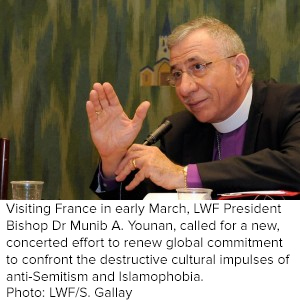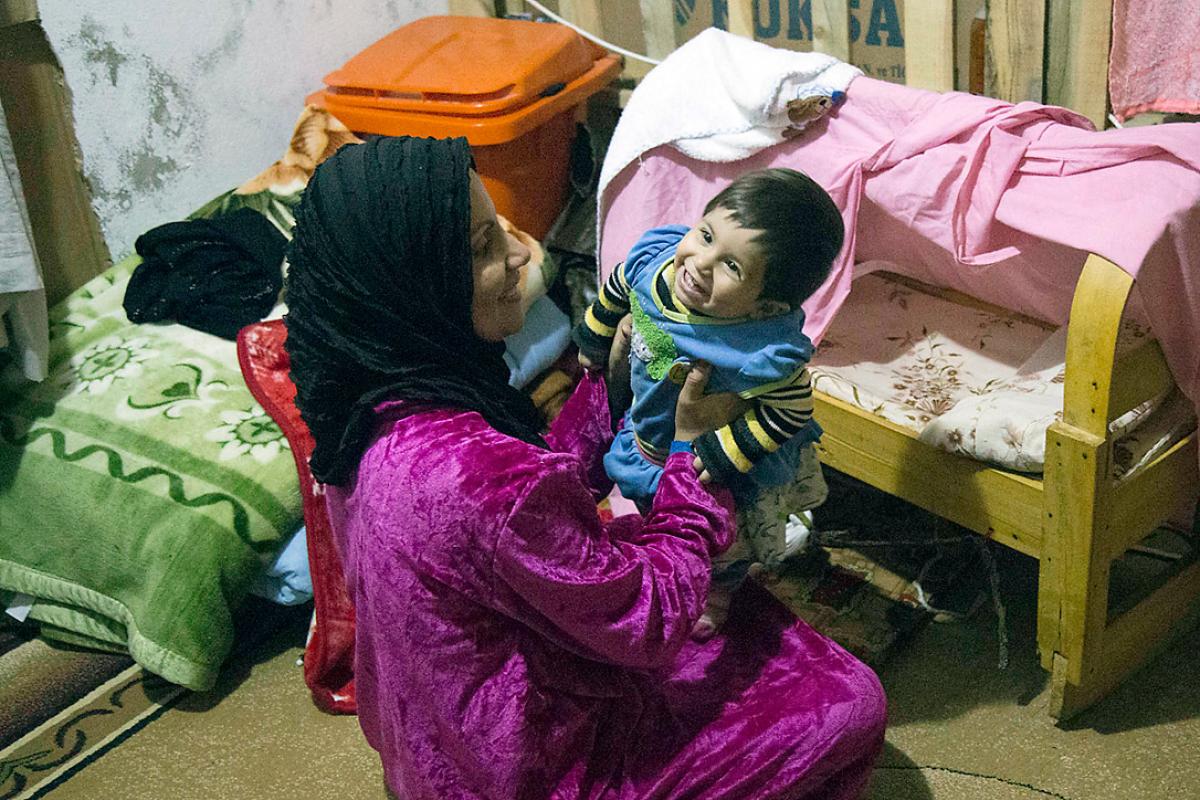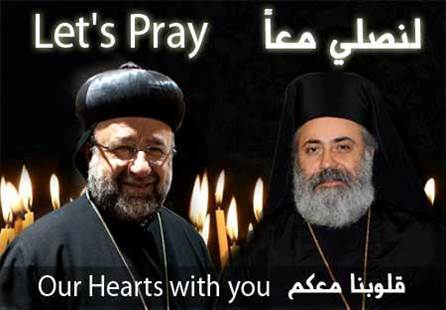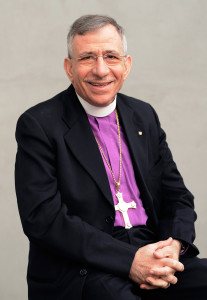Bishop Dr. Munib A. Younan, Bishop of the Evangelical Lutheran Church in Jordan and the Holy Land, sent the following letter to President Trump about his recent executive order about refugees and immigrants:
An Open Letter to President Donald Trump From a Bishop of Jerusalem 1 February 2017
Jesus said: “I was a stranger, and you welcomed me.” (Matt 25:35)
The President
The White House
1600 Pennsylvania Avenue, N.W.
Washington, DC 20500
Dear Mr. President,
Salaam and grace to you from Jerusalem, in the name of Our Lord Jesus Christ.
I write to you from the Holy City of Jerusalem in a spirit of prayer. I pray that your presidency will be a fruitful one. I pray that under your leadership, the United States of America will continue to uphold and promote its time-honored values of diversity, equality, pursuit of happiness, and of liberty and justice for all.
I pray that as President, you will uphold and promote these values, not only for the citizens of your country, but also for your neighbors. May your commitment to the foundational values of your country extend also to those living in areas of conflict and suffering. I offer this prayer from my office in Jerusalem, where we are still praying and working for a peaceful, just solution for the two peoples and three religions of this land. We long to realize the liberty, justice, and equality in diversity that your country exemplifies for the world.
I have heard about the recent executive decisions you have taken regarding immigrants and refugees, and I am worried.
I am worried, because for nearly 250 years, the world has looked to your country as an example of how diverse races and nationalities can possess one American identity. Your country has led the way in promoting civil rights, always hearkening back to the principle of equal citizenship, with liberty and justice for all. This is the reason so many refugees and immigrants have looked to the United States as a beacon of hope.
I am worried, not only for those who can no longer enter your country, but for the safety of my neighbors in this region. I am afraid that the decision to deny entry for citizens of seven Muslim-majority countries while suggesting preferential treatment for Christians from those same countries will be harmful to many smaller communities in the region. This approach will be especially harmful to Arab Christians. In the Arab world, Christians have a long history of living side by side with our Muslim neighbors. We reject any move to divide Arab society along religious lines, and continue to see ourselves as deserving equal citizenship with equal rights and equal responsibilities.
I am worried, because I myself am a refugee, and know firsthand the struggles refugee families face. At the same time, as a Lutheran bishop, I know that turning away refugees of any religion contradicts the message of Jesus Christ. Jesus himself was also a refugee, who sought refuge and safety with his family in Egypt. Throughout his life, through his teaching and his actions, Jesus showed concern for the stranger and the outcast. In her pastoral letter of 30 January, Presiding Bishop Elizabeth Eaton of our partner church, the ELCA, has said:
“Our Lord not only commanded us to welcome the stranger, Jesus made it clear that when we welcome the stranger into our homes and our hearts – we welcome him.” (Matt 25:35)
For this reason, welcoming the stranger is not optional for Christians. It is one of our foundational values.
In November 2013, a group of diverse religious leaders from around the world gathered in Vienna to sign “Welcoming the Stranger: Affirmations for Faith Leaders.” This historic document pledges support for refugees, internally displaced and stateless persons, and to work against xenophobia. More than 600 delegates from the Buddhist, Christian, Hindu, Jewish, and Muslim faiths attended the event, a powerful witness to the fact that concern for refugees is not exclusive to one religion, but is at the heart of every religious tradition.
As the Lutheran Bishop in Jerusalem, as a refugee, and as a global citizen, my plea is that you will reconsider your recent decisions regarding refugees and immigrants. I urge you to reflect upon the foundational values of the United States and of Jesus, and to seek a different path toward the twin goals of security and opportunity in the land of the free.
Most respectfully,
Bishop Dr. Munib A. Younan Bishop of the Evangelical Lutheran Church in Jordan and the Holy Land
cc: Bishop Elizabeth A. Eaton – Presiding Bishop of the Evangelical Lutheran Church in America
The original text can be found here.
To learn more about the ministry of the Evangelical Lutheran Church in Jordan and Holy Land click here.




